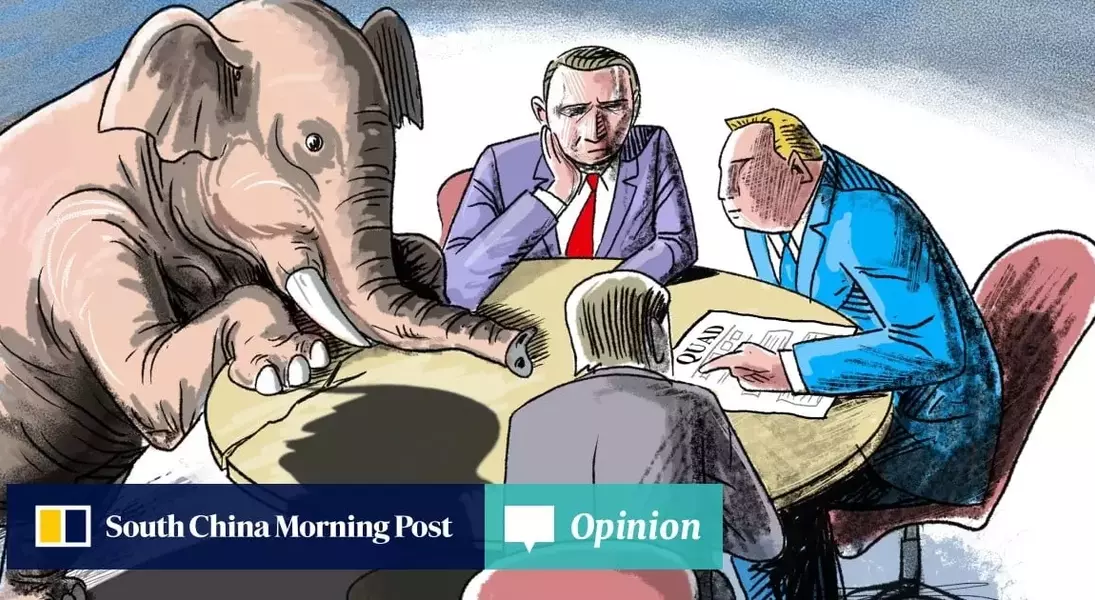Navigating the Geopolitical Tides: Quad's Pursuit of a Stable Indo-Pacific
As the world grapples with the shifting sands of global power dynamics, the Quadrilateral Security Dialogue (Quad) has emerged as a critical player in shaping the future of the Indo-Pacific region. Comprising the United States, Japan, Australia, and India, this strategic alliance has been thrust into the spotlight, tasked with navigating the complex web of regional tensions and fostering a stable, inclusive, and resilient order.Quad's Unwavering Commitment to a Rules-Based Order
Upholding International Law and Norms
The Quad nations have made it clear that their shared vision for the Indo-Pacific is rooted in the principles of international law and a rules-based order. In their joint statement, the leaders emphasized their "commitment to the international order based on the rule of law" – a direct response to the growing assertiveness of China in the region. By aligning their policies and actions with these foundational principles, the Quad seeks to create a stable and predictable environment, where all nations can thrive without fear of coercion or unilateral actions.Promoting Inclusive and Resilient Development
Recognizing the importance of sustainable and equitable growth, the Quad has pledged to support initiatives that foster "a free and open Indo-Pacific that is inclusive and resilient." This commitment extends beyond mere rhetoric, as the group has announced plans to collaborate on critical areas such as public health, cutting-edge technologies, and quality infrastructure development. By investing in these domains, the Quad aims to empower local communities, strengthen regional resilience, and create a more prosperous and interconnected Indo-Pacific.Safeguarding Maritime Security
One of the Quad's key priorities is the preservation of a free and open maritime domain. The group's joint statement highlighted the importance of "maritime security" – a clear nod to the ongoing tensions in the South China Sea and other strategic waterways. Next year, the Quad plans to hold its first joint maritime patrol mission, a powerful demonstration of their shared commitment to upholding freedom of navigation and the peaceful resolution of disputes.Navigating Uncertain Geopolitical Tides
As the Quad solidifies its position as a formidable regional force, it faces a complex and ever-evolving geopolitical landscape. The potential return of former US President Donald Trump could upend the Biden administration's global strategy, potentially jeopardizing the Quad's hard-won progress and the delicate web of alliances that underpins it. Navigating these uncertain waters will require the Quad members to maintain a steadfast commitment to their shared values, while also demonstrating the flexibility and diplomatic acumen necessary to adapt to shifting regional dynamics.Fostering Constructive Cooperation
Despite the underlying tensions and the perception of the Quad as a "China-bashing forum," the group's leaders have been careful to frame their gathering as a platform for constructive cooperation. By emphasizing their "shared values" and a commitment to "global cooperation," the Quad has sought to position itself as a force for positive change, rather than a mere counterweight to China's regional ambitions. This nuanced approach, coupled with tangible initiatives in areas like public health and technology, aims to build trust and foster a more inclusive regional order.Strengthening Quad's Strategic Relevance
As the Quad continues to evolve, its strategic relevance will hinge on its ability to deliver tangible results and demonstrate its value to the broader Indo-Pacific community. By expanding its areas of collaboration, deepening its institutional frameworks, and fostering closer ties with other regional partners, the Quad can solidify its position as a key player in shaping the future of the region. Ultimately, the Quad's success will be measured not only by its ability to manage regional tensions, but also by its capacity to promote shared prosperity, strengthen regional resilience, and uphold the principles of a rules-based international order.

